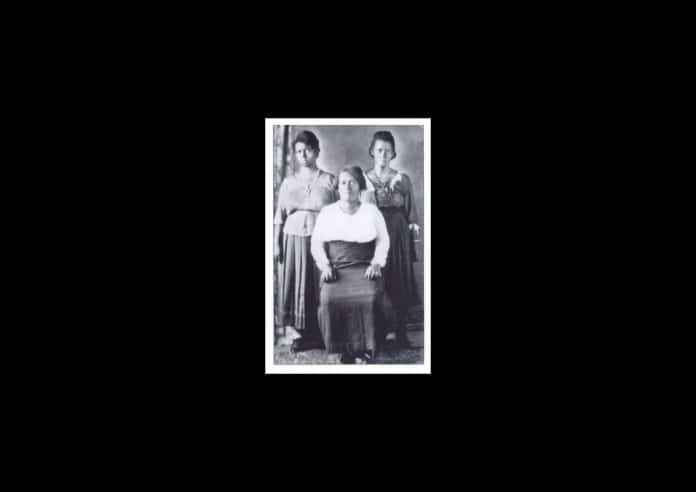Brooksville resident, Ms. Mable Sims, is an “encyclopedia” of knowledge about Hernando County – including the early days of its checkered past and more recent events. The seventy-three-year-old mother of four, grandmother to fourteen, and great-grandmother to fourteen children is the keeper of her family’s history and a scholar of how the Black community and the White community interacted – sometimes successfully and sometimes not.
Ms. Sims was born on July 16, 1946, in Twin Lakes, located in Hernando County just north of the Pasco/Hernando county line. An excerpt from an 1885 publication, stated that Twin Lakes “has a good school, churches, etc. The people are profitably engaged in fruit and stock raising. The prominent orange-growers are: Messrs. W. R. Nicks, Joshua Mizell, W. H. Hancock, M. D. Eiland, John O’Neil, and John St. Clair. Land is worth from $10 to $75 per acre.”
Her great, great-grandfather, Hampton St. Clair helped to found the community. His brother Arthur started Bethlehem Progressive Baptist Church and together the brothers started the first African American school in Hernando County.
According to Ms. Sims, both races got along well. As a child, her family had white neighbors.
“When their well went dry, they used our well. And Mr. Hatcher, he’d come by later and say, ‘Here’s you a mess of fish for your supper, here’s you a coon…’ When his wife was ready to give birth, she stayed with us so Precious [Mable’s great grandmother] could help bring the baby into the world.”
But there was also an undertone of racism and violence. Miss Mable attended segregated schools and remembers “colored” and “white only” washrooms in Brooksville.
“In town, you knew about racism. In the country you didn’t,” she remarks.
Although two violent incidents involving her family occurred before she was born, Miss Mable recalls them from stories handed down and relates them vividly with passion and sadness.
The first occurred in 1877 when a group of twenty prominent local white men murdered her forty-year-old great, great Uncle Arthur St. Clair, Hampton’s brother. Two white men, Henry Lloyd and John O’Neil came to assist St. Clair in the attack. Lloyd was shot and killed, while O’Neil jumped into Robertson Pond to escape. The assailants were wearing hoods, but a number of people could identify the men by the horses they were riding. The men were never prosecuted. Around 2002, Miss Mable met the descendants of two of the men and they apologized for what their ancestors had done.
The other incident took place in 1929. Her great-grandmother’s cousin, Carl Lang, who was only about seventeen years old, was falsely accused and arrested for shooting a gun into the home of a deputy sheriff who lived in Twin Lakes. There was no one at home at the time. He was taken to the jail in Brooksville.
“When his mother came to visit Carl at the jail, the white people said, ‘Alberta, don’t come up here no more.’ They were warning her that something could happen.”
Carl was later released. He had to walk home all the way from Brooksville to Twin Lakes, a distance of about fourteen or fifteen miles.
Miss Mable continues the story, holding back her tears, “On his way home, a group of white men overtook him and carried him to the Withlacoochee Forest on Route 41. They put him on a horse; they put the noose around his neck; they hit the horse and broke the boy’s neck. Then they put him down on the ground, lit a tree stump, and burned him up and said they were having a ‘moonshine’ party.”
Although Miss Mable wasn’t born yet, she remembers, as a child, how it affected her family.
“Every day my great Aunt Alberta would come to Precious’ house and every day she would have tears rolling down her face that her son was killed. It hurt for me as a little girl to listen to her talk about the hideous thing that had happened.”
Despite all the injustice that Mable Sims has seen in her seventy-three years, she doesn’t feel hatred toward anyone.
“My grandmother taught us to ‘Love ye, one another, no matter the color you are. If you cut your arm, the blood’s going to be the same. I tell people today, ‘you just fall in love with them and pray for them.’ I treat people the way I want to be treated, no matter whether they mistreat me or look down on me. I don’t return their hatred with hatred. I give them love. I always have a smile on my face.”
In 2007, Ms. Sims’ great, great uncle, Arthur St. Clair, was honored as Great Brooksvillian – a hopeful sign that the achievements of all members of our community were starting to be recognized.
Miss Mable expresses her philosophy in a poem she wrote:
What is Hate? ©
“What is hate? Hate is a fester, a boil. It can eat at the soul.
Hate is an erosion eating at the marrow of your bones.
Hate is a volcano waiting to erupt.
Hatred is bitterness. Hate tastes like gall.
Hate keeps you spinning all in one place, never going anywhere.
Hate can consume like fire.
Hate is misleading and a destroyer.
Hate is a deceiver. It is like deadly poison.
But love conquers all.
Forgive as Jesus Christ forgave.
And that is what Uncle Arthur St. Clair would say.”
September 20, 2007 – Mable L. Sims

